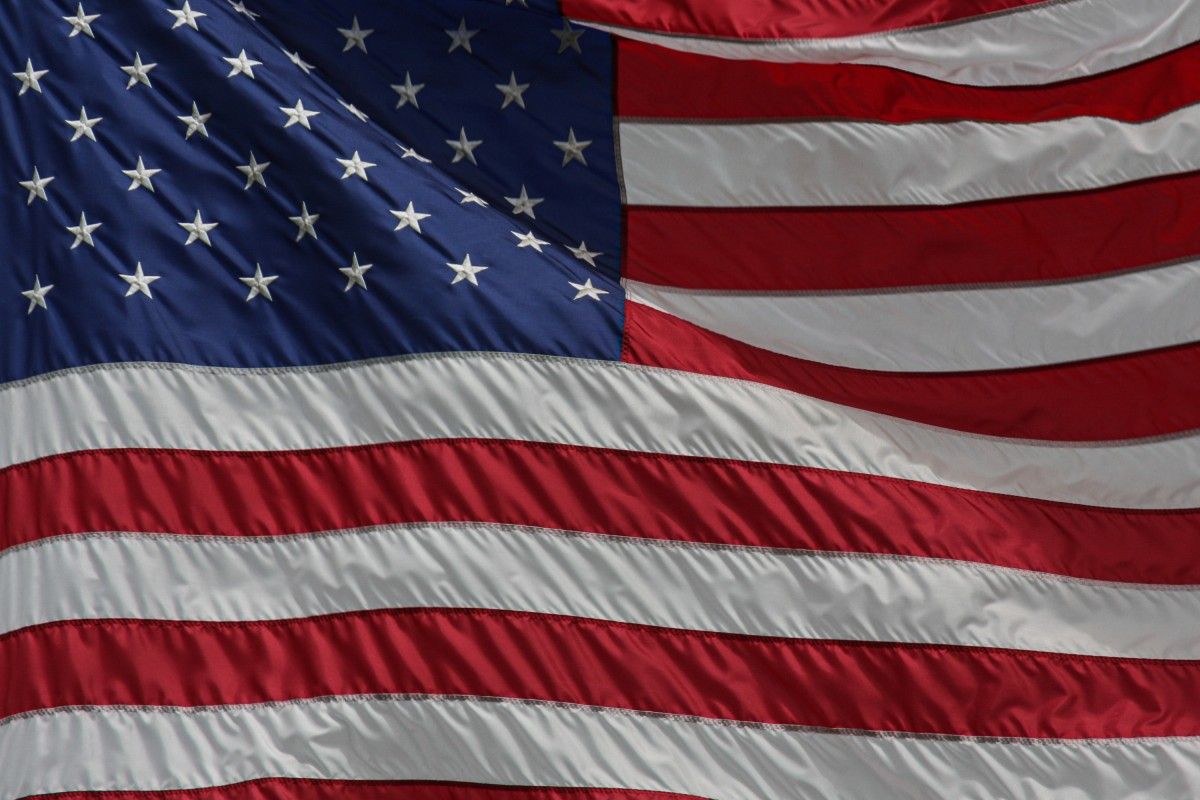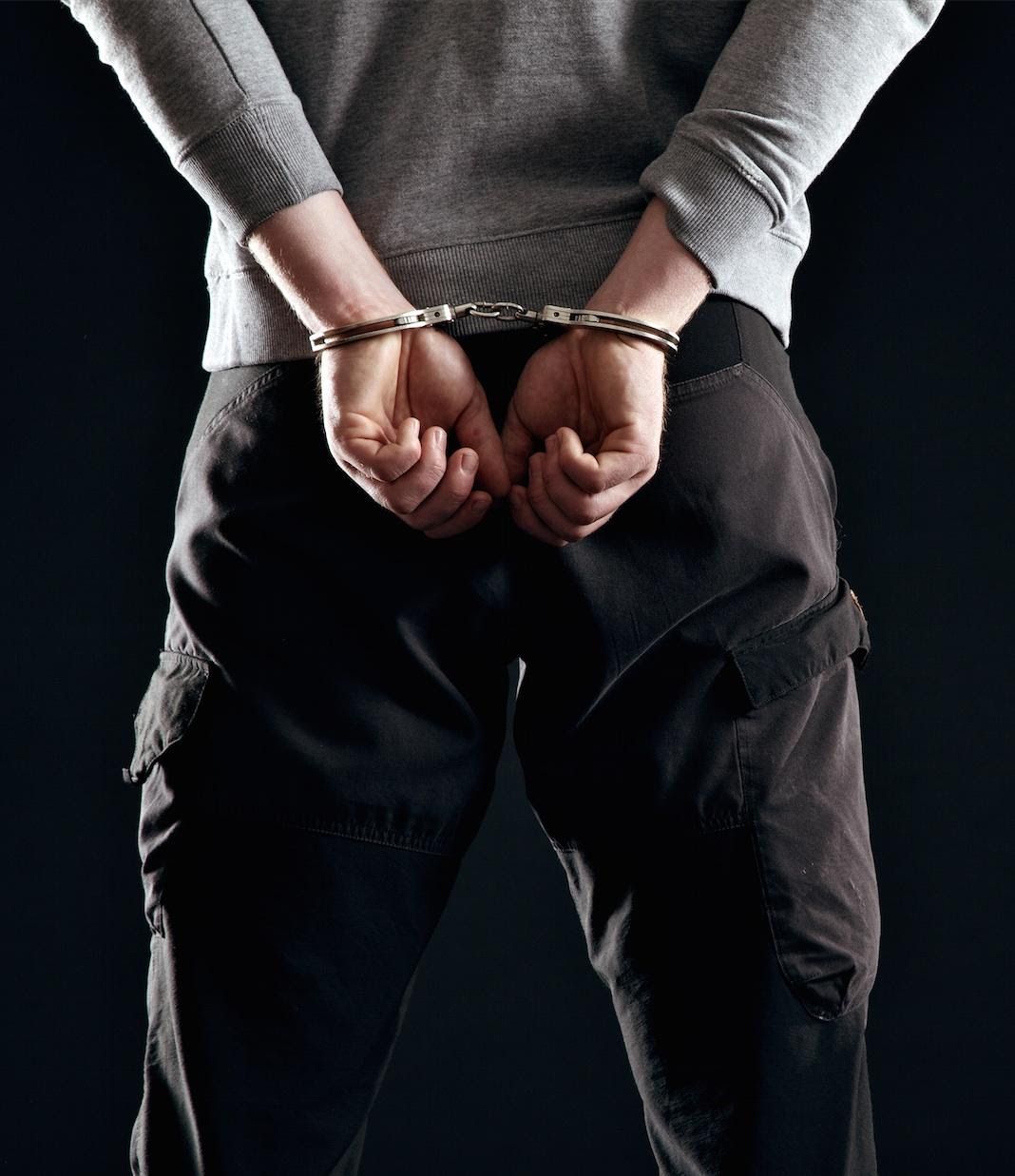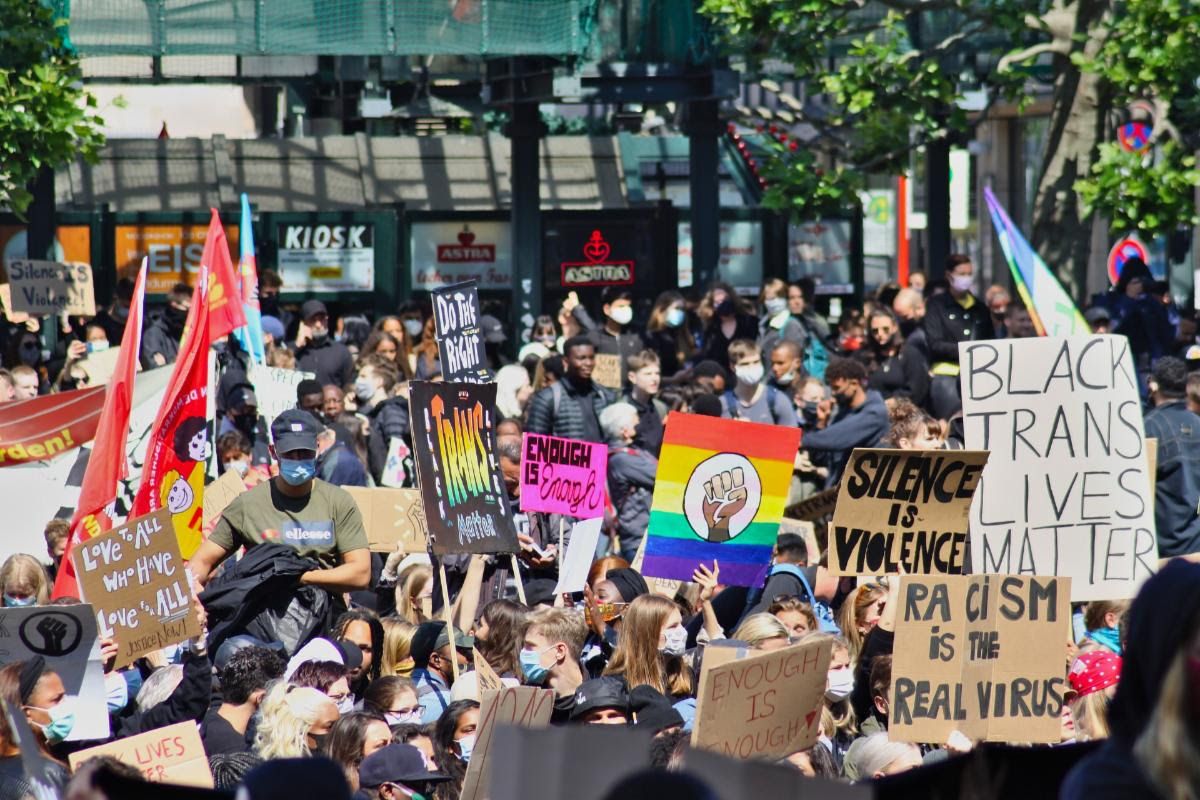Can America Vote Its Way to National Health? — Intro & Part 1

A Brief Introduction
The question that forms the title of this two-part article may seem odd in light of current events. Yet the question is relevant, if for no other reason than it forces us as Christians to reflect on the potential and manner of our future deliverance.
The hope and trust many believers have invested in the ballot box should not be taken lightly. It is a manifestation of deeply held beliefs about the way God has chosen to work in our society.
But what if we are wrong?
What if the present-day darkness is not a momentary dislocation, but the onset of something permanent? What if the noxious weeds overtaking our national landscape are not the doing of today’s political passers-by, but are rather the fruit of a subterranean root network that has been taking shape for decades.
My purpose in this article is to summarize the current threat to our national and spiritual wellbeing, to consider whether this threat can be addressed through conventional and traditional methods, and to suggest things that we as believers can do to become authentic change agents.
It is natural to want things to just go away. Unfortunately, we are not the only players on the field. Many others live amongst us, and the things they want to go away are the very things we cherish.
So here we are.
The first part of this article offers an unvarnished look at the violence and lawlessness currently sweeping our nation. The portrait is both seething and poignant; a tragic panorama of weak, self-serving officials; nihilistic rioters; and the victims of unadulterated hatred.
I am aware some will deem this unnecessary, arguing that we are already thoroughly acquainted with what is going on. To these individuals I respectfully say, We don’t know the half of it!
Indeed, I would go so far as to argue that as Christians we need more exposure to the reality around us, not less. Like the prophets and intercessors of old, we need to look at the calamity until we are unable to restrain our tears; until our only response is to cry out for mercy and deliverance. If it is genuine change we are after, our prayers must be visceral… lifted up from the depths.
We cannot overlook the fact that in many parts of our nation the church has been deemed “non-essential.” This alone should provoke us to reexamine the way we are living out our faith.
So, take the coming pages for what they are — a report on the current crisis. It may seem like I have “gone political,” but as you will see in Part II of this article, this is not my intended destination.
Politics cannot save us.
Part I ~ The Present Crisis
I recently watched a riveting press briefing put on by the Portland Police Bureau. The hour-long event featured three stellar officers — two men and one woman — sharing their personal encounters during the city’s devastating, and ongoing, riots.
The first gentleman, a police sergeant, was one of a handful of officers inside the downtown police precinct when a large crowd of anarchists attempted to burn the building down with numerous civilian workers inside. His description of the hours-long siege was absolutely chilling.
On another occasion, he recalls being summoned as part of a Mobile Field Force to protect the Portland Police Association office that was being targeted by some 500 rioters. Holding the line for hours whilst being pelted with a steady barrage of bricks, paint, and explosives, he and his fellow officers were subject to, in his words, “some of the most horrific displays of hate I’ve ever seen in my life.”
Female officers were taunted with threats of rape, with one demented individual promising to sexually abuse them with their own riot batons.
For a long time, average Americans, including a goodly number of Christians, have shrugged off suggestions the nation was unwell in any serious or terminal sense.
Today, however, this argument is largely over.
Violent crime has exploded in big cities, with Portland, New York, Chicago, Los Angeles, Minneapolis, Seattle, Baltimore, and Philadelphia being hit especially hard. Damage from rioting has soared into the billions of dollars — making this summer’s civil disturbances the costliest in U.S. history.
Many of these losses are linked to organized, industrial-strength looting that some are calling “reparations for slavery.”
Black Lives Matter spokesperson Ariel Atkins argues that looting and violence are a winning strategy. “Winning has come through revolts,” she says. “Winning has come through riots…The whole idea of criminality is based on racism anyway, because criminality is punishing people for things that they have needed to do to survive or just the way that society has affected them with white supremacist B.S.”

Another 19-year-old looter insisted that “Any successful slave rebellion, any successful overthrowing of a non-representative government for black people, has to come through burning things down.”
Armed with this argument, looters in Southern California set out in June to pursue their righteous insurrection. Working in caravans, they methodically blocked off streets with getaway cars, shattered windows, and left heavily laden with sneakers, skateboards, jewelry, cigars, electronics, alcohol, and clothing. After unloading their “reparations,” many returned to the same stores for more.
On the other side of the nation, the NYPD seized one car filled with over $17,000 worth of merchandise. One officer described the scene as “complete chaos,” with people walking down the street dragging bulging laundry bags and an armful of sneaker boxes. In Chicago, Police Superintendent David Brown told local media that looters on the city’s Magnificent Mile arrived in U-Haul trucks and cargo vans.
As one young looter told a reporter for the LA Times, “We’re doing it because we can.”
Sadly, this national mayhem has effectively destroyed what little hope small business owners had left after draconian Covid-19 restrictions. Many are people of color from the same neighborhoods as the rioters, and a high percentage are now closing up shop for good.
People are rattled.

“I’ve lived here for 20 years,” said one Chicagoan who lives in the downtown area. “It’s getting scary, because you can’t walk out now. You don’t know if they’re going to start with the people walking on the streets, instead of the stores.”
A 60-year-old owner of a watch repair shop on Wabash Avenue lost nearly $1 million worth of inventory. None of it insured. "It is my entire life, he lamented. “Forty-two years in this business. I am left with nothing.”
Another dejected resident, an immigrant jeweler, has seen his store vandalized twice in the last few months. Standing in the midst of shattered glass and trashed computers, he could only say, “It’s hard to describe. The Mayor has to do something. This is unacceptable.”
A nearby shopkeeper agreed. “If this keeps happening, why is anyone going to stay?” she asked. “They’re ruining the city of Chicago.”

The BLM protestors’ response? To demand that all arrested looters be released, and to threaten more rioting “until the Chicago Police Department is abolished.”
Just a few years ago, this radical rhetoric would have led to moral distancing. Today it is justified, even lauded, by politicians, celebrities, and social media influencers. Large corporations and professional sports have tripped over themselves in a rush to provision BLM’s coffers with eye-popping sums.
This latest iteration of “justified lawlessness” — a trend that began with the championing of illegal immigration and defiant sanctuary cities — was put on full view by transgender author Vicky Osterweil during a controversial interview on National Public Radio in August.“
Looting strikes at the heart of property, of whiteness, and of the police,” Osterweil insisted. “It provides people with an imaginative sense of freedom and pleasure and helps them imagine a world that could be… That’s a part of it that doesn’t really get talked about — that riots and looting are experienced as joyous and liberatory.”
To those who worry this kind of philosophizing simply empowers baser instincts, Osterweil offered this apologetic. “The very basis of property in the U.S. is derived through whiteness and through Black oppression.” This make looting just and reasonable behavior. Asked about the violence and the losses, Osterweil replied: “It’s just money. It’s just property. It’s not actually hurting any people.”
Descending into the Abyss
Lawlessness is now rampant at every level of American society. Anarchists and opportunistic street thugs may be setting the fires, but it is morally compromised politicians, professors, and public prosecutors who are supplying the fuel. By removing consequences, and easing the consciences of those who would help themselves to the fruit of others’ labor (two wrongs apparently do make a right), they are systematically eroding bedrock virtues such as responsibility and forgiveness; virtues that have long helped imperfect societies get better.

When Chicago police officials complained that looters took to the streets with the confidence they would not be prosecuted, Cook County State’s Attorney Kim Foxx responded by saying, “Our office is not in the arresting business.”
In Portland, where violence against police has been unrelenting, Multnomah County District Attorney Mike Schmidt pledged to not prosecute rioters for disorderly conduct or resisting arrest. Making good, his office dropped over 400 protestor charges in the month of August.
Further north, Seattle mayor Jenny Durkan characterized as good policy the abandonment of the police department’s East Precinct to violent protestors who barricaded six city blocks and renamed it the Capitol Hill Autonomous Zone (CHAZ). The zone was not “a lawless wasteland of anarchist insurrection,” she insisted, but rather “a peaceful expression of our community's collective grief and their desire to build a better world.”
After two teens were shot in the occupied territory, one fatally, the city’s African American police chief called the situation “dangerous and unacceptable.” But rather than accept any responsibility for a failed policy, the mayor elected to cast blame elsewhere. “I want to acknowledge,” she told the media, “that much of the violence and destruction, both here in Seattle and across the country, has been instigated and perpetuated by white men.”
In other states, notably New York, Illinois, California, and New Jersey, activist officials have contributed to the public safety crisis by drastically reducing bail requirements for criminal defendants, suspending cooperation with federal law enforcement agencies, and granting early release to thousands of prisoners.
Los Angeles County Sheriff, Alex Villanueva, a political maverick, has bewildered many observers with his steadfast refusal to assist federal Immigration officials endeavoring to process criminal illegal aliens. In just the last fiscal year, he has ignored over 25,000 federal requests to transfer prisoners — including those with felony convictions for assault, sex offenses, and murder.
At the same time, city council efforts to defund police departments have wrested huge sums from law enforcement services in Austin ($150 million), Los Angeles ($150 million), New York ($1 billion), San Francisco ($120 million), Philadelphia ($33 million), Baltimore ($23 million), and Portland ($15 million). Even more dramatic reductions are planned for the coming years.
There Will Be Blood
A Wall Street Journal analysis of crime statistics reveals the timing of these actions could not be worse. Among the nation’s 50 largest cities, reported homicides are up 24% in the current calendar year.
In New York City, shootings have increased by more than 80% compared to the same period last year.
Chicago is experiencing a similar surge in violent crime. In July alone, 584 people were shot in the Windy City. There have been 505 recorded homicides through August, putting the community on track for its highest murder rate in decades.
Now, the FBI warns, at least three dozen street gangs are tracking (and filming) Chicago police officers with the intent to “shoot on sight” any who draw their weapons. According to Superintendent David Brown, at least 51 police officers have been shot at thus far, quadrupling any previous year in Chicago’s history.
Jeff La Blue, a spokesman for the Fresno police department, reports shootings and stabbings have soared in his community as well. “Nerves are high,” he said.
One exasperated NYPD officer who wished to remain anonymous told a Fox News correspondent, “People who allow these protesters to talk about how they want to defund the police department… Well, we’re there to make sure that nothing happens to them, but they are the ones saying that they want us dead!”
During the rioting in downtown Portland, one local reported listening to hours of non-stop police bashing in an area “surrounded by an ocean of anti-cop graffiti such as ‘Kill Cops,’ ‘Dead Cops,’ ‘Fry Little Piggies,’ and ‘Run Over Cops’ with your car.” Left shaken by this “pure hatred,” he said, “I worry that people are going to get hurt.”
It did not take long for the prediction to materialize.
On the evening of August 29, a young man wearing a Patriot Prayer hat took a wrong turn into an area occupied by leftist anarchists. Cell phone video captures a street thug yelling out, “Hey! Hey, we got one here! We got a Trumper right here!” Another individual, apparently seeking targeting confirmation asks, “Right here?” Moments later, Antifa activist Michael Reinoehl fires into the young man’s chest.
It would get even worse.
Hearing the shots, nearby resident Gabriel Johnson, a black man, walked over to learn what had happened. Arriving on the scene, he said, “I was appalled to see people in the streets celebrating!” When he asked how they could do this, they acknowledged no remorse, saying only that “a fascist Nazi was killed tonight.”
They did not even know the man. But his murder fulfilled a warning posted a few days earlier on Facebook: “You will be red blood to the blue sharks!”
“I hold the city and the mayor responsible,” Johnson fumed. “This man’s death is on them.”
Not surprisingly, many businesses are fleeing Portland’s urban center. Greg Goodman, co-president of the Downtown Development Group, has seen nothing like it in his 42 years of doing business in the city. And he has had enough. In a recent letter to Mayor Ted Wheeler and members of the Portland City Council, he contends the exodus of companies “has everything to do with the lawlessness you are endorsing downtown.”
Gabriel Johnson agrees. “Ted Wheeler, our city council, even our governor, have created an atmosphere of lawlessness — and this is the result of it.”

As one news commentator put it, “We live in strange times where words are violence, silence is violence, but actual violence is but a righteous response to suffering and oppression.”
In New York, a police officer disillusioned by the city’s sympathy toward violent protestors and its decision to strip a billion dollars from the department’s budget lamented he “never imagined the lack of support would get this bad.”
Crime in the city has become so serious he now advises tourists — and his own relatives — to stay away. And he no longer wants his son to follow his path into law enforcement when he gets older.
Many seasoned observers note the most violent and sustained confrontations challenging American cities are the work of roving revolutionaries. The goal of these determined and opportunistic anarchists is to turn protests about economic or racial injustice into chaotic and destructive riots.
In many communities, idealism is being hijacked by sheer terrorism.
The extremists espouse both left-wing and right-wing ideologies, and operate within organizational structures that are often loose and opaque. The Boogaloo Bois and the Proud Boys are the more notable groups on the right, while Antifa, and certain communist and BLM factions populate the left side of the spectrum.
Although BLM is the higher profile — a boogeyman to the right, and the sweetheart of the left — the movement’s umbrella shelters a broad range of goals, attitudes, and tactics. Some protests have been peaceful and warranted; others have been displays of nihilistic rage.
Riding the BLM wave, Antifa has cunningly positioned itself as both an instigator and an accelerant in flashpoints like New York, California, and the Pacific Northwest. And as law enforcement in Portland has learned, they are unrelenting. Their unambiguous goal, as the New York Post put it recently, is to destroy all American institutions and then the country itself. “When they spray-paint or shout, ‘Burn it down,’ they really mean it.”
Louisiana Attorney General Jeff Landry is convinced violence and lawlessness have yet to peak in America. It is an unnerving thought. “I believe a tipping point is coming,” he says, “because every violent crime creates an exponential number of victims.”
But if the worst is yet to come, how should we as believers prepare for this new season?
What assets can we bring to the national discussion? Can we shed the perception that we are a non-essential institution? What will it take for us to become effective and recognized agents of reconciliation? And as we journey, how can we avoid becoming ensnared in the spirit of the age? Or by an elevated sense of our own virtue?